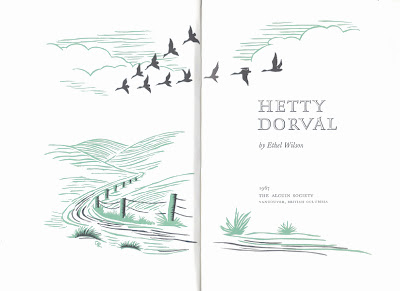
Under the Hill
Aubrey Beardsley, completed by John Glassco
Paris: Olympia, 1959
Beardsley devoted a good portion of his short life to this retelling of the Tannhaüser legend, and returned to it repeatedly until the last cough.
While Glassco claimed that he first read an expurgated version as a boy (unlikely), and that he hand copied the true text as a McGill University student (possible), it wasn't until 1948 that he began this completion of Beardsley's work. He picks up the abandoned thread mid-way through the tenth chapter, then, following the legend and Beardsley's rough plan, adds a further nine. Glassco doesn't create so much as a seam - despite introducing personal interests not shared by the dead Decadent: flagellation and the touch of the governess. In his completion, Glassco has Tannhaüser attend a performance of Pink Cheeks, a pantomime-operetta that is advertised as 'Two Hours of Fun & Flagellation'. Later, while in Rome to seek absolution, the Minnesänger sets out to transcribe his sins, lest he forget any transgression before the Holy Father. In doing so, he casts his mind back to the governesses of his childhood: Mlle Fanfreluche, with whom he'd shared 'merry games at bedtime', and a later woman who had first introduced him to the pleasures of the birch.
In the summer of 1965, French authorities seized Under the Hill. The unsold stock, more than half the print run, was threatened with destruction. In defending the book, publisher Maurice Girodias was placed in the absurd position of having to prove Beardsley's reputation as a respected artist in a court of law.
The charges attracted interest from the London's New English Library, which quickly published a paperback edition to capitalize on a Beardsley revival, fuelled by an immensely popular retrospective at the Victoria and Albert Museum. Yet, despite all this excitement and interest across La Manche, Girodias lost his case. In August 1966, all copies of the elegant Olympia Press edition seized eleven months earlier were condemned to the flame.
Glassco was heartbroken, and could not understand the decision in that he'd never thought of Under the Hill as pornography: 'It is romantic, rococo, faisandé, Huysmanesque, playful, madly affected, solidly in the tradition of dandyism; it's even got a highly moral ending, with Tannhaüser officially damned & trapped forever under the hill. I wouldn't be in his elegant slippers for anything.'
Tannhaüser Before the Hill of Venus
Trivia: Under French law, Glassco, as copyright holder, should have been charged alongside the publisher. After the court case was lost, Girodias wrote the author: 'Curiously, and strangely, the prosecuting magistrate preferring to consider that you did not exist, and that you were a figment of my imagination, if you pardon the expression. I did not oppose that view naturally.'
Object: Under the Hill looks nothing like any other Olympia Press book. Illustrated by Beardsley, printed on heavy stock, bound in green watered silk, and issued in a numbered edition of three thousand, it was a extravagant production that Girodias would never repeat.
Access: A common title, but one not usually found in public libraries. Under the Hill continues to be published in the England and the United States; there has never been a Canadian edition. Used copies can be had for as little as a few dollars. Given its beauty and history, the first edition seems surprisingly inexpensive - generally between C$75 and C$200. Copies currently offered by Canada's online booksellers are priced at well over twice as much as those listed by their European and American brethren. Make of that what you will.
Related posts:
A Dutch Treat
Canada's Olympians (Part I)
Canada's Olympians (Part III)
Canada's Olympians (Part IV)
















































